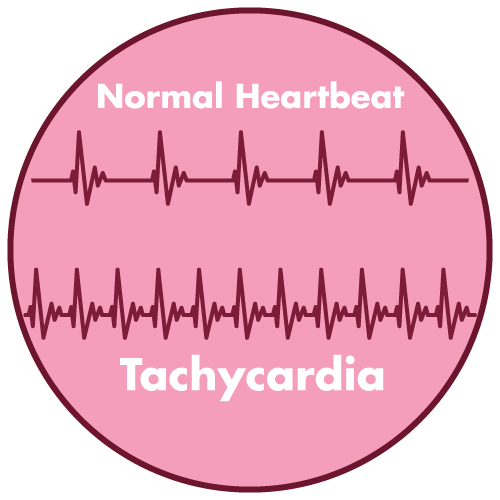| Name | Atropine Sulphate |
| Classes |
Cardiovascular Agent Dermatological/Topical Agent Antidote Ophthalmic Preparation Mydriatic |
| Diseases |
Cardiac Arrest Cardiovascular Disease Muscle Spasm Ophthalmic Disease Optic Inflammation Poisoning Shortness of Breath |
Atropine Sulphate
Atropine is a muscarinic antagonist. Atropine inhibits the muscarinic actions of acetylcholine on organs innervated by postganglionic cholinergic nerves, and on smooth muscles which respond to endogenous acetylcholine but are not so innervated.
Atropine is a muscarinic antagonist indicated for temporary blockade of severe or life threatening muscarinic effects.
- Atropine sulphate is for intravenous administration, but may also be administered via subcutaneous, intramuscular or via an endotracheal tube.
- Titrate according to heart rate, PR interval, blood pressure and symptoms.
Adult dosage-
- Antisialagogue or for antivagal effects: Initial single dose of 0.5 mg to 1 mg.
- Antidote for organophosporous or muscarinic mushroom poisoning: Initial single dose of 2 mg to 3 mg, repeated every 20 30 minutes.
- Bradyasystolic cardiac arrest: 1 mg dose, repeated every 3-5 minutes if asystole persists.
- Patients with Coronary Artery Disease: Total dose should not exceed 0.03 mg/kg to 0.04 mg/kg.
Most adverse reactions are directly related atropine’s antimuscarinic action, such as-
- Dryness of the mouth
- blurred vision
- photophobia
- tachycardia
- Tachycardia: When the recurrent use of atropine is essential in patients with coronary artery disease, the total dose should be restricted to 2 to 3 mg (maximum 0.03 to 0.04 mg/kg) to avoid the detrimental effects of atropine-induced tachycardia on myocardial oxygen demand.
- Acute Glaucoma: Atropine may precipitate acute glaucoma.
- Pyloric Obstruction: Atropine may convert partial organic pyloric stenosis into complete obstruction.
- Complete Urinary Retention: Atropine may lead to complete urinary retention in patients with prostatic hypertrophy.
- Viscid Plugs: Atropine may cause inspissation of bronchial secretions and formation of viscid plugs in patients with chronic lung disease
Contraindication
Contraindicated in patients hypersensitive to atropine.
None known.
None known.
 Bangla
Bangla English
English

